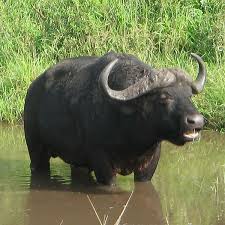记忆方法
将“ox”与“oak”联系,想象一头强壮的公牛(ox)在坚固的橡树(oak)树下休息,从而帮助记忆这个单词,因为“ox”是公牛的意思。
以上内容由AI生成, 仅供参考和借鉴
中文词源
ox 公牛
来自古英语oxa,公牛。其复数为oxen,比较children.
英语词源
- ox
-
ox: [OE] Ox is an ancient word, traceable back to a prehistoric Indo-European *uksín-. This also produced Welsh ych ‘bull’, Irish oss ‘stag’, and Sanskrit ukshán ‘bull’, and it has been speculated that there may be some connection with Sanskrit uks- ‘emit semen’ and Greek hugrós ‘moist’, as if *uksín- denoted etymologically ‘male animal’.
If this was so, the ‘seed-bearing’ function had clearly been lost sight of by the time it had evolved to Germanic *okhson, which was reserved for a ‘castrated bull’. Ox’s modern Germanic relatives are German ochse (taken over by English in the compound aurochs ‘extinct wild ox’ [18], which etymologically means ‘original or primeval ox’), Dutch os, Swedish oxe, and Danish okse.
=> aurochs - ox (n.)
- Old English oxa "ox" (plural oxan), from Proto-Germanic *ukhson (cognates: Old Norse oxi, Old Frisian oxa, Middle Dutch osse, Old Saxon, Old High German ohso, German Ochse, Gothic auhsa), from PIE *uks-en- "male animal," (cognates: Welsh ych "ox," Middle Irish oss "stag," Sanskrit uksa, Avestan uxshan- "ox, bull"), said to be from root *uks- "to sprinkle," related to *ugw- "wet, moist." The animal word, then, is literally "besprinkler."
权威例句
- 1. Seize a horse by the mane, and lead an ox by the nose.
- 马儿抓鬃牛牵鼻.
- 2. The ox is never woe , till he to the harrow go.
- 牛不耙地不知苦.
- 3. I'm willing to be an ox serving the country all my life.
- 我甘当孺子牛,终生为国家服务.
- 4. We've made a fire fit to roast an ox.
- 火生得很旺,足以烤一头牛了.
- 5. He drove the ox hard.
- 他使劲地赶牛.
